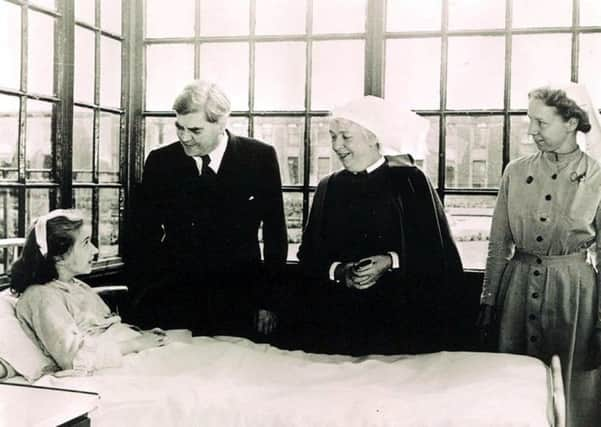How do we give the NHS a healthy balance sheet?


However, when she was being discharged, she was struck by the sight of a queue of people standing in line to pay for their treatment and a credit card machine on the desk of the hospital reception which seemed very out of sorts.
In narrating this story to friends, another ex-pat living in Brussels shared his experience. Having moved to Brussels, and being used to the UK system, he had not put in place the arrangements to deal with his healthcare. Taking the care for granted, he was surprised to find bailiffs at his door in respect of unpaid health bills following treatment.
Advertisement
Hide AdAdvertisement
Hide AdThere is much talk about the fact that we are living longer with multiple conditions like diabetes and heart disease requiring treatments that are rising in cost.
Meanwhile, it is reported that hospital bed numbers have fallen and frequent headlines claiming our NHS is in crisis.
It appears to me that we have a choice to make and the sooner we make it the better.
The general public would like to prioritise our healthcare system but is not keen to pay more for it. The disconnect appears to be in evidencing “value for money”.
What price are we prepared to pay for our health care? Do we really prioritise its importance if it’s a service we dip in and out of until age forces us to take issue? Are we even aware, or prepared to join in the debate, the costs of our general healthcare whether that be medicines, operations, nursing care, dental treatment, meals? The costs are significant and continually on the rise.
There are many systems available throughout the world that appear to be performing better than ours. In those countries there is some connection between the money being paid and the delivery of the service.
In Germany and France, for example, they use a social insurance model to pay for healthcare but deductions are taken from income so it does not operate differently from tax deducted at source.
Unlike other insurance models, everyone is covered and the companies who operate the healthcare cover do not make a profit. This seems like a ‘fairer’ option and one worthy of consideration.
Advertisement
Hide AdAdvertisement
Hide AdIn Belgium they are considering charging vat on cosmetic surgery, but excluding reconstructive surgery required by accidents.
Long gone are the days when our National Insurance contributions directly funded our healthcare and its structure has dramatically changed since its inception by Aneurin Bevan in 1948, when his ambitious vision introduced healthcare for all citizens transforming post-war society and building a health service admired around the world.
It may be time to revisit that or at least take a more radical and bold approach, similar to Bevan’s to a long term problem.
Peter Duff is managing partner at Morisons Solicitors.